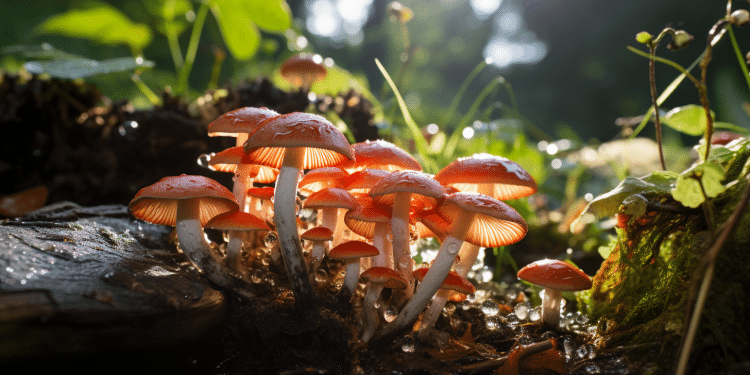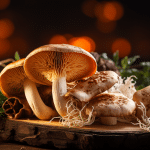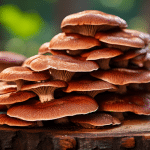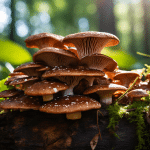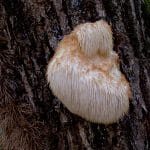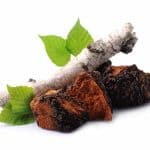Fungi are a critical part of your yard, breaking down decomposing material to produce healthier soil, and often they last just a short while. So, make peace with them, if you can, and enjoy these wonderful organisms. But, if you have young children and pets, or you are suffering from mycophobia, you might want to keep mushrooms out of your backyard. So what are ways to prevent mushrooms from growing in your backyard?
The best course of action is to make your yard less attractive for mushrooms, and to cut down on your mushrooms food sources.
1.Improve Soil Drainage
If there are patches of standing water in your gardens and lawns, or they stay wet for a long time after rainfall, you might have compacted soil. Aerating helps to improve drainage, which reduces moisture levels in those areas and keeps mushrooms at bay.
2. Increase light and Air Circulation
Trim back and thin trees and shrubs to allow for greater sunlight penetration and to improve air circulation in shaded, wet areas.
3. Remove Wood and Tree Stumps
Remove any stumps, decaying branches, or wood in order to decrease fungi forage. If you have a patch of land where a tree used to live, the dead roots can still promote fungi growth, even if no stump is present.
Learn more: Supplements for focus
4. Limit Irrigation
Sodden lawns promote mushrooms, so limit weekly watering to one inch (2.5 cm). You might need more water for new lawns, but cut back whenever possible.
5. Remove Excess Thatch in Lawns
Thatch is a densely interwoven layer of living and dead leaves, stems, and roots that build up between growing grass layers and soil. If you have too much thatch, over 0.5 inches (1.3 cm), it soaks up water and provides food source for mushrooms. Dethatching your lawn may help deter mushrooms.
6. Clean up Pet Waste
Pet waste is another source of food for mushrooms, so take out the poop from your pets often.
7. Remove Immature Mushrooms
Picking or mowing mushrooms does not alter conditions in the field and does not inhibit growth. But, if you pick or mowing mushrooms before they drop spores, you may be able to keep them from spreading. If you have children or dogs, prefer to pick mushrooms and dispose of them safely. Mowing can leave a fragment of mushrooms for dogs and children to find.
8. Apply a Nitrogen-Rich Fertilizer
When you apply a nitrogen-rich fertilizer to a lawn, it accelerates decomposition of organic matter in the soil. Doing so decreases fungis food sources, which may slow down, and even stop, fungi from growing.
Learn more: What are the stages of mushroom growth
9. Balance the Bacteria and Fungi in Your Soil
Bacteria-rich soils contain more leafy foods, while fungal-rich soils contain more lignin-based foods such as decomposing wood and leaves of trees. If there is a neutral balance of fungi and bacteria in your soil, you will get less mushrooms.
If you do get lots of mushrooms, adding more leafy materials, such as grass clippings and veggie leaves, to the soil can help. Mulching with grass clippings is one way of doing that.
Natural Ways to Kill Mushrooms Growing in Your Backyard
It is easier to reduce or prevent mushrooms by managing your backyard conditions rather than killing them. Underground networks of mushroom mycelium are extensive and well-hidden, so digging up them or using a commercial fungicide does not eliminate them. Fungicides generally do not work very well on mushrooms, as they will not penetrate deep enough into the soil to get to the mycelium and kill the fungus. It is also a bad idea to use toxic chemicals and fungicides in areas where children or pets play.
1. Vinegar
One of the ways you can eliminate mushrooms growing in your backyard is by spraying a solution of vinegar on them. Household vinegar or cooking vinegar is generally not powerful enough. Horticultural vinegar is quite potent, so if you can, look for one and follow instructions on how to dilute to just the right strength. Using a spray bottle makes applying vinegar to mushrooms easier, but be mindful of where you are spraying because vinegar may kill surrounding grasses or plants too.
2. Baking Soda
Baking soda is the gentler method, although not a fungicide, will raise soil pH, suppressing the growth of mushrooms. Baking soda isnat a permanent fix, but it is safer and effective.
There are two ways to apply baking soda to mushrooms. The first is liquid, using a spray bottle.
Mix two tablespoons of baking soda in one gallon (5L) of water, stirring it in well before dissolving. Spray the mixture on mushrooms and surrounding soil.
Over time, it will decrease mushroom growth, possibly killing them. The second technique is to spread baking soda directly on mushrooms and surrounding soil, then sprinkle water on top. You will have to repeat these methods regularly to see results, but they are cheap and safe for use around pets and children. Something to keep in mind is that any major changes to your soil pH levels can suppress the growth of surrounding plants.
3. Soapy Water
Commercial dish soap is another simple solution for killing mushrooms in the yard. Mix a tablespoon or two of any commercial dish soap in up to three gallons (15 L) of water. Using a screwdriver or similar, poke holes into the soil around your mushrooms. Pour the soapy water on top of the mushrooms and down into the holes. Repeat this several times per day for one week, and you will notice the mushrooms drastically reduced.
For it to work, soapy water needs to reach the deep ground where the mushrooms live. But, not everyone wants to eliminate mushrooms from their yard. For those who do want an ongoing supply of fresh mushrooms, let us look at different ways to grow mushrooms in your yard.
Updated 10/3/2022
